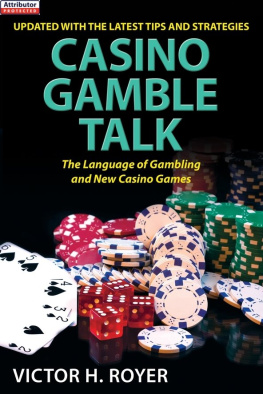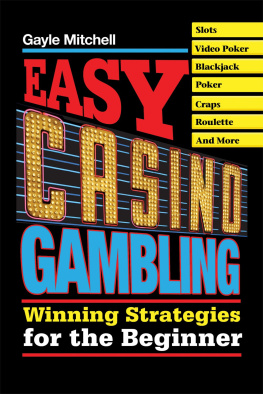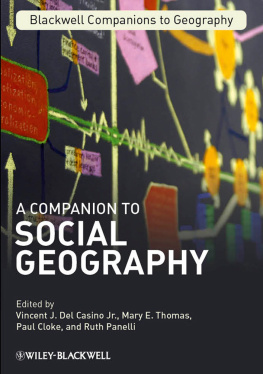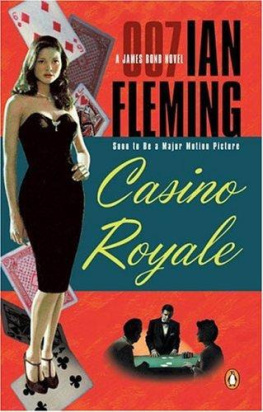Copyright 2018 by the University of Washington Press
Printed and bound in the United States of America
Maps by Pease Press Cartography
Composed in Charter, typeface designed by Matthew Carter
22 21 20 19 18 5 4 3 2 1
All rights reserved. No part of this publication may be reproduced or transmitted in any form or by any means, electronic or mechanical, including photocopy, recording, or any information storage or retrieval system, without permission in writing from the publisher.
University of Washington Press
www.washington.edu/uwpress
Library of Congress Cataloging-in-Publication Data on file
ISBN 978-0-295-74335-6 (hardcover), ISBN 978-0-295-74336-3 (pbk), ISBN 978-0-295-74337-0 (ebook)
FOREWORD
Brook Colley came to me some years ago and began asking questions about the casino conflict between the Grand Ronde and Warm Springs tribes, a conflict that lasted from 1998 to 2013, when Warm Springs proposed building a casino near Cascade Locks, Oregon, alongside the Columbia River. At first I was hesitant to talk with her. At the time, there was little communication between Grand Ronde and Warm Springs that was not extremely negative. Colley is also a descendant of the Warm Springs tribe and, as a Grand Ronde member and part of the tribal staff, I was wary. Staff are discouraged from making potentially political statements, and I worried that speaking with her might affect my position. At the same time, I felt a responsibility as a member of one of the tribes involvedI wanted to help all of us better understand what was happening. So as an exercise in intertribal relations and applied anthropologybeing a professional anthropologistI chose to take part and give Colley my unfiltered opinions.
Now, years later, I have come to see Colleys work as extremely important in helping untangle the issues at play, leaving behind contentious political rhetoric. Colleys research and writing have inspired me to think deeply about the casino disagreement specifically and, more broadly, about the historical factors that fed into it. Tribes face many problems, and to me those problems are embedded in the histories of how we got here, to a place of intertribal opposition, contention, lawsuits, and bad feelings. I assign significant responsibility for this divisiveness to the manner in which the federal government has controlled and erected barriers in front of tribes for generations.
Elders tell the story that all of us Natives are living in a crab basket, and whenever one of the crabs tries to crawl out, those below grab them and pull them back in. I have always wondered what this meant. Are we destined to remain at our status? Is there no real opportunity for any of us, because we are simply living the human condition? I have come to see that the problem lies not with the crabs but with the basket they all live in. This is an artificially woven environment, a political structure that the crabs did not construct but was made by others with the intent of keeping all the crabs in the basket. Tribes remain under the control of the federal government, fighting among themselves for the limited remainder of the resources they are allowed to have.
Tribal nations in the United States were removed from their lands, dissociated from their cultures, and reprogrammed to be Americans by the federal government. For more than two hundred years, each new generation of federal politicians has constructed new and malignant tactics to reduce and eliminate tribal nations. In the early nineteenth century, the strategy was warfare, and tribal lands were taken by conquest. In the 1850s and after, the strategy was treaties, as it proved cheaper to buy land and remove tribes to smaller parcels than go to war. In 1887, the Dawes Act codified the strategy of eroding tribal holdings by reducing the acreage of reservations. The Dawes Act included the Trojan Horse of using blood quantum as a measure of Indian-ness for the sake of federal policies. Unless Native people had one-half or more Indian blood quantum, they could not gain an on-reservation allotment. This US government notion of blood quantum also found its way into tribal citizenship policies, which today operate to eliminate enrollmentand Native statusfor the future generations of many tribes. Further, by the 1910s, many of those who had received reservation allotments had passed away, and their allotments were sold and thus removed from reservations.
In the 1950s, the federal government sought to simply designate some tribes as assimilated and therefore not deserving of the benefits of treaty rights or reservations. This policy was ostensibly intended to give tribal members the freedoms and rights of every other American citizen, including the right to not live on an impoverished reservation. But many tribes saw termination as cultural death, and some tribes succumbed. One hundred and nine tribes were terminated and all their lands liquidated. Many tribes successfully fought against termination and advocated that status be restored, and in the 1970s and 1980s many tribes regained federal recognition. Grand Ronde was one of the tribes so restored, in 1983, while Warm Springs was able to stop their termination bill.
Throughout this history, tribes lost political and economic power as they went from owning all their lands to owning little or nothing. Most tribes were very poor and appeared to be doing nothing to better their situations, when in fact federal policies have impoverished tribes. The Trade and Intercourse Act, for example, first passed in 1790 and renewed through the 1830s, managed tribal economic development with the aim of civilizing Native people, prohibiting tribes from selling products outside their reservations unless Congress passed a special bill.
It is in this context, and within this history, that gaming became an avenue of tribal economic development. In the 1980s, the US government sought ways to help tribes become economically self-sufficient and thus not dependent on federal funding, which some considered welfare. Gaming was attractive because it seemed to offer the same opportunity to all tribes regardless of their land or resource base. However, the resulting legislation did not take into account the messiness of tribal removal to reservations. It did not acknowledge the arbitrary nature of what tribes had been relegated to what reservations. In truth, tribal boundaries were not always firm borders: many tribes were heavily interrelated, and cultures and traditional resource areas overlapped.
Warm Springs and Grand Ronde are related peoples. All the Chinookan (Kiksht) tribes on the Columbia River were related to one another. Chief Kiesno of Sauvie Island, in the mid-nineteenth century, was related to the people of the Cascades (Watlala) as well as to Clatsop chief Concomly at the Columbia River estuary. Kiesno also had relations with the Clackamas at Willamette Falls and within the Tualatin Kalapuya tribes. In a sense, all the tribes of western Oregon are interrelated, regardless of language groups. But this did not mesh with the federal treaty structure, which imposed strict divisions between tribes. The subsequent decades of living apart on separate reservations has caused further social and political divisions between tribes. Where traditionally tribes in the region had highly developed protocols for visiting with and using the resources controlled by other autonomous villages, these structures were broken down by federally imposed bureaucracies and oversight. Tribes were left with the legal structures of the United States for solving political conflicts, which has meant lawsuits and political strife.










